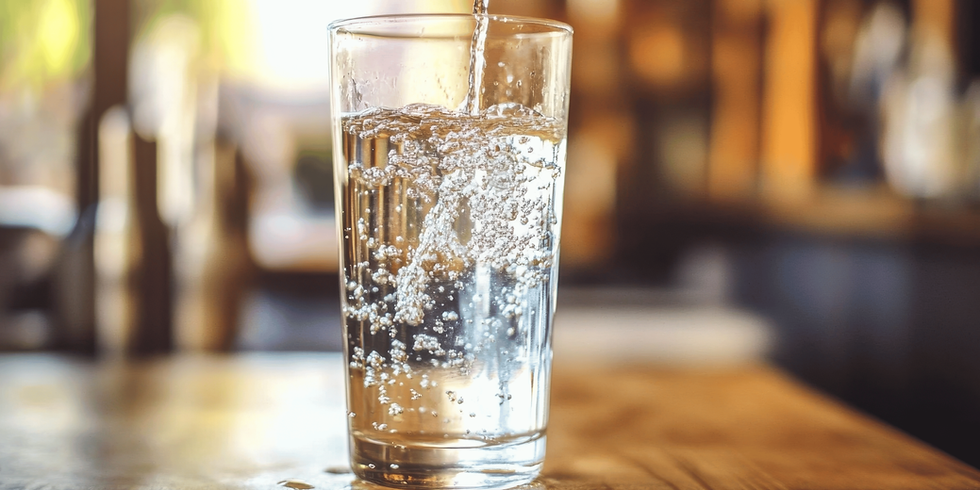Is Well Water Hard Water?
- everlastingwells
- Nov 21, 2025
- 4 min read
Understanding the Facts About Your Home’s Water Supply
When in a rural or suburban region there are high chances that your home has well water rather than city water. The question many homeowners ask themselves is, Is well water hard water? The answer to this is yes, most of the time.
The abundance of the minerals that cause hard water like calcium and magnesium is usually found in well water. But what does that imply to you, your house and your health? We can go a step further to find out why well water is hard and what you can do about it.
What Is Hard Water?
Hard water is water that has a lot of dissolved minerals which are mainly calcium and magnesium. These minerals do not hurt your health, but they may bring about numerous issues in your place of residence.
When it rains, it is naturally soft, that is, it has very few minerals. It flows into the ground piercing through the layers of the soil and rocks. As it flows, it dissolves calcium and magnesium which are naturally found in limestone and chalk. Water by the time it accumulates in underground aquifers (where the well water is found) has acquired a significant mineral burden.
This is the reason that well water is generally hard water and particularly in places which have soil and rock that is rich in calcium and magnesium.
Why Is Well Water Usually Hard?
Well water is not exposed to a treatment plant as is the case in city or municipal water. It gets it directly out of the underground aquifers on your land. Although this includes the fact that your water is natural and not subjected to many chemicals as in municipal treatment plants, it also implies that it has all the minerals that it has picked up on its way down the ground.
The level of hardness in well water can vary depending on:
Geographic Location – In some of the areas like the Midwest, Southwest, and some areas of the Southeast, have limestone-based soil that contributes to the increased mineral content of groundwater.
Depth of the Well - The deeper the well the more the water is filtered through more layers of rock, which may add to mineral content.
Water Source and Aquifer Type - The kind of rock structure in the area of your aquifer determines the level of hardness of your well water.
While not all well water is equally hard, most private wells have some degree of hardness.
How to Tell If Your Well Water Is Hard
A few of the warning signs that your well water is hard are:
● Chalky mounts on faucets, sinks, and showerheads, white.
● Spots on dishes and glassware or film after washing.
● Soap, which does not lather readily and leaves behind on the skin or hair.
● Laundry that becomes faded/stiff even after washing.
● Lower water pressure because of a deposition of minerals in pipes and appliances.
These are typical signs but the only sure way is to test your well water.
Effects of Hard Well Water
Although hard water is not hazardous to consume, it may lead to a number of issues in the house as time goes by.

Plumbing and Appliance Damage
The hard water leads to the formation of mineral deposits (scale) in the water heaters, dishwashers, and washing machines. This accumulation has the potential to decrease the flow of water, raise the cost of energy and decrease the life of your appliances.
Laundry and Cleaning Issues
Hard water has minerals that do not allow the lathering of soap and detergent. Consequently, garments will be stiff or unattractive, and you will have soap residue in sinks, bathtubs and showers.
Skin and Hair Problems
The skin of the person using hard water may be dry and itchy since it leaves a layer of soap that blocks pores. It is also capable of rendering hair dull and lifeless with accumulation of minerals.
Higher Cost of Maintenance
The consequences of hard water may in the long run cause costly repairs on the plumbing, a lot of appliance replacement and rising bills on the energy expenses because the water heating is not efficient.
How to Treat Hard Well Water
Luckily, it is possible to soften your well water and preserve your house in a number of ways.
Install a Water Softener
The best and most popular solution is a water softener. It operates through the ion exchange mechanism to extract calcium and magnesium ions in the water and replaces it with sodium or potassium ions.
Benefits include:
● Softer skin and hair
● Cleaner dishes and clothes
● Lasting plumbing and appliances
● Use a Salt-Free Water Conditioner.
To prevent the build-up of minerals in your water, a salt-free water conditioner (also known as a descaler) can be used to prevent this without actually taking away the hardness minerals. This alternative is less maintenance and green.
Reverse Osmosis System
A reverse osmosis (RO) solution purifies the water by filtering the water through a semipermeable membrane and removes not only the hardness minerals, but also other pollutants such as iron, manganese, and sediments. A large number of homeowners install RO systems beneath the kitchen sink to have purified drinking water.
Regular Maintenance and Testing
The water in your well should also be tested at least once a year even after you have a treatment system installed. Testing will help you to know that your system is functioning well and that your water is safe and clean.



Comments